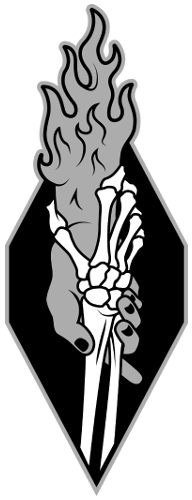We have all seen how public discourse has increasingly sunk to infantile levels, with people screaming nonsense insult names at each other instead of addressing the actual issues, and using memes instead of logic. This strikes us most poignantly in the instances where one person pleads for compassion, generosity, and inclusiveness, and the opposing person responds with “Cuck! Beta! Libtard!” Aside from the obvious disparity in quality of both thought and communication between them, the one shouting insults has completely misunderstood the nature of strength.
They think that by yelling, claiming to be physically tough, and belittling any more considerate expression, they have demonstrated strength; but in fact they have only shown the weakness of their position. Even if they magically busted through your phone or computer screen with tanks and guns and muscles bulging, they would not have supported any facts or reason on their side of the discussion at all. Of course when they do provide some sort of “evidence”, it comes in the form of recycled propaganda like memes or talking points from “news” sites that in fact exist only to incite violent divisiveness. This includes repeating the mantra that people who disagree with them are all mentally ill, stupid, or demonic. We see that last one all day, every day on Twitter, and the irony makes us laugh. They associate compassion and kindness with spineless crying frailty, but they do not understand the inner strength required to be kind.
Firstly we quote Al Capone: “Don’t mistake my kindness for weakness. I am kind to everyone, but when someone is unkind to me, weak is not what you are going to remember about me.” This line implies fierce individual retaliation, but Demonkind prefer to think of it as referring to strength in numbers. When we stand up for our values, including kindness, we show others that they too can resist the tide of knuckle-dragging meme-fevered jingoists.
Secondly we have long observed that people who freak out the worst about issues like gender and sexuality tend to be very insecure in their own bodies and feelings. “NOT ME” they will shout, pounding their chests, but why else would it bother them so much to think of a gay or trans person next to them in a bathroom? They panic about gays “turning people gay” because they think their own sexuality, or that of their children, can be changed with the wave of a magic hand. When they screech about feminists “killing masculinity” you have to ask why their masculinity was so flimsy in the first place that it needs to be defended against someone they think is inferior.
In reality it takes absolutely nothing away from us to let another person express their identity in peace. People who scream obscenities, when they encounter a different way of living, scream because they get frightened easily, and because they cannot handle the cognitive dissonance of seeing the terrible chasm between their supposed goodness and the way they actually treat other people. If we have real personal strength we can let someone else take their turn at the wheel without losing even a drop of our own power. Their strength does not diminish ours, their accomplishments do not diminish our own. The catch is that we may mistakenly assume we already have that kind of strength.
Really we all have to train and condition ourselves just like athletes, testing ourselves with ever greater intensity, to build those “muscles” and reflexes of personal integrity. This takes purpose, deep self-awareness, and willingness to challenge our own assumptions on a daily basis. We all live in contradictions; the difference between a hypocrite and a healthy person with integrity is that the hypocrite cannot admit when they are wrong, and they refuse to change.In order to make healthy changes, we need to actively listen to others when they have constructive critiques. Only a weak person, or we should say someone having a moment of weakness, gets defensive.
To examine our own weaknesses and “evils” in the deeper recesses of our minds and hearts is what Jung referred to as katabasis, or the night sea journey of the hero, where we travel into the underworld of death to retrieve some treasure. If we stay there, we die. So we build our inner strength, training ourselves by testing our actions against our values, for anabasis: the equally difficult journey back to the outer world.

Having returned, we possess riches and powers that greatly outmatch anyone who has failed to take this journey, and whose “strength” reveals itself as merely stubbornness, the rigidity of fear, and reactionary bluster. We see their attempted bullying force revealed as hollow, fearful, and frankly quite fragile, and it does not shake us.